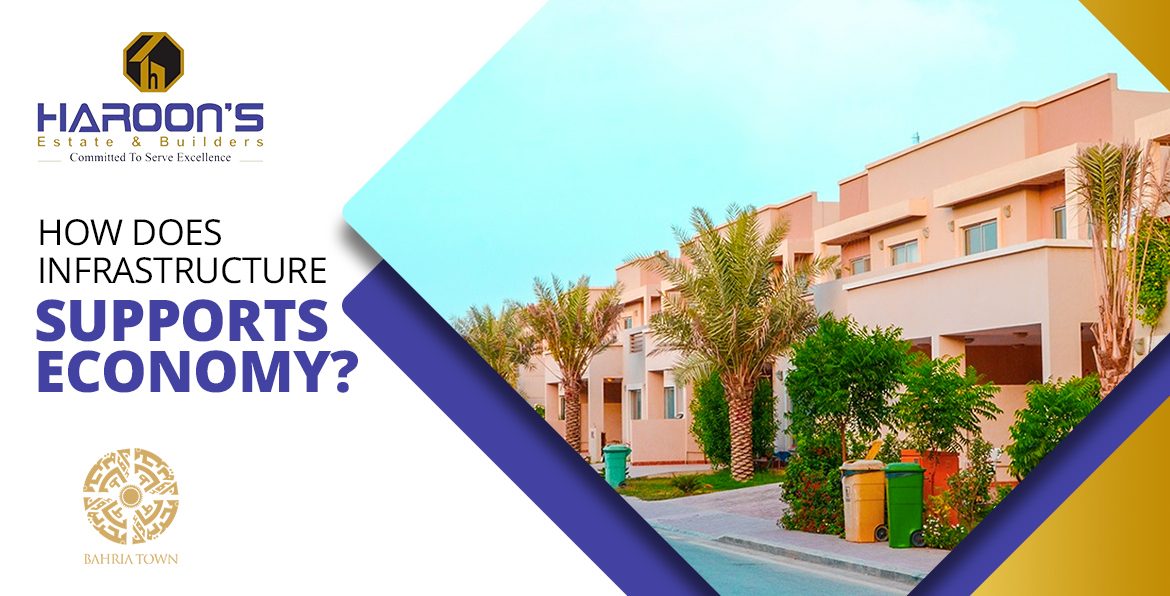Urban communities and metropolitan regions all throughout Pakistan somehow face financial, financial, demographic, and ecological difficulties that make it crucial for the general public and private industry to reexamine the path they work on. The new emerging powers are unimaginably assorted, they share a fundamental requirement for a modern, proficient, reliable, and sustainable infrastructure.
Concrete, steel, and iron and fiber-optic cables are the foundations of the economy. Infrastructure empowers trade, powers organizations, links laborers to their employments, opens doors for communities struggling for existence, and shields the country from an inexorably erratic natural environment. From government to private investments in information systems to telecommunications systems, broadband systems, cargo railways, energy projects, and pipelines, to openly spending on transportation, water, buildings, and recreational facilities, landmarks and others, infrastructure is the foundation of a solid economy.
Massive infrastructure and building projects like Bahria Town in Pakistan provide a huge number of people with employment, brings foreign investments and brands. This as a whole gives a boost to the economy and helps offer a quality secure lifestyle.
Infrastructure additionally underpins laborers, giving a great many employments every year in building and preservation of infrastructure. From urban engineers and electrical cable installers to truck drivers and aircraft pilots to construction workers and painters, infrastructure jobs represent a good chunk of the country’s workforce, offering business prospects and employment opportunities that have low entry barriers and are predicted to develop throughout the following decade.
Significant national objectives additionally rely upon it. The economy needs solid infrastructure to associate supply chains and proficiently move merchandise/goods and services across the borders. Infrastructure links family units across metropolitan regions to better open doors for employment, health-care, and education. Clean sustainable energy and public transportation can diminish carbon footprints and greenhouse gases. The same logic applies to broadband systems, water supply and energy generation, and dissemination.
With a rapidly growing population and growing concentration in metropolitan areas, it makes it imperative to work on infrastructure. Metropolitan zones must be prepared to adjust not exclusively to serve a great many customers but in addition, to supporting more unfortunate citizens, a significant number of whom are jobless, have the most obvious opportunity to look for some kind of employment.
Our economy is changing as quickly as our society. Many businesses are expected to step into Pakistan and there will be a huge foreign investment influx, and due to quick globalization and CPEC, projects will be set up in urban areas and coastal areas. This offers a phenomenal open door for Pakistani businesses to produce more and export more goods and services, mitigating unemployment. It additionally intensifies the significance of our seaports, airports, cargo rail, border connecting routes, and truck routes, which move millions of dollars worth of goods rapidly and effectively every day in the mind-boggling supply chain of the present economy.
In today’s modern economy, infrastructure is of foremost importance for a nation to prosper. Projects are becoming more huge and complex than ever. Thus, there is no one-size-fits-all strategy to develop infrastructure. It depends upon the time place, time, requirements, and the specifics of each project and the existing market and business situation.

